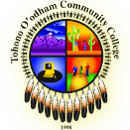State Authorization Reciprocity Agreement (SARA)
Arizona State Authorization Reciprocity Agreement (AZ SARA)
Tohono O’odham Community College (TOCC) participates in the Arizona State Authorization Reciprocity Agreement (AZ SARA). This agreement oversees the offering of online and virtual courses and programs, which are also known as distance education. The SARA process holds colleges to national standards of quality for distance education and best practices in delivery. AZ SARA requires each member institution to explain how students can address their concerns about the distance education at that college.
SARA COMPLAINT POLICY
TOCC is committed to its students’ success by providing holistic, quality higher education services, through in-person, virtual, and online courses and programs. AZ SARA provides a way to address the concerns of out-of-state students about the delivery and quality of TOCC’s virtual and online programs and courses. The points here are designed to guide students through the complaint process.
- For any kind of complaint, students are encouraged to try to resolve the situation informally, speaking directly with the instructor, staff member, or other student who is involved. If the informal approach does not work, then the student may file a Grade Appeal or Student Complaint.
- For grievances about grades and other instructional matters, the Student Handbook describes the “Grading Complaints & Appeal Process.” As mentioned in this policy, Grade Appeal Committee decisions are final.
- For non-academic complaints, the Student Handbook lays out the “Non-Grading Student Complaint Process.” This policy includes the steps for review and resolution, as well as two levels of appeal, to the President’s Office and to the Board of Trustees.
- For in-state or resident students with complaints, the highest level or appeal is the College’s Board of Trustees.
- For out-of-state distance-education students, if they have gone through TOCC’s complaint and appeals processes and are not satisfied, then they may file a complaint through the AZ SARA Council portal.
- The AZ SARA Council will “address concerns related to distance education activities (online learning, sufficiency of support for distance education students, and related activities) from out-of-state students” (NC-SARA, A Resource for Students: Frequently Asked Questions about Filing a SARA Complaint, page 2).
To file a SARA complaint about TOCC, click here.
MORE ABOUT SARA
Formerly, colleges and universities offering online, virtual, or other distance education courses to out-of-state students needed to apply for authorization in each state where their out-of-state students resided. Now, through the principle of reciprocity, colleges and universities can apply to their own state for authorization to serve the out-of-state students.
All U.S. states except California participate in the SARA model; Washington, D.C., Puerto Rico, and the U.S. Virgin Islands are also members of SARA. A nonprofit organization called the National Council for State Authorization Reciprocity Agreements (NC-SARA) ensures that SARA agreements function in a similar way across the 49 states and the other regions mentioned.
“Reciprocity” is a relationship in which two or more parties agree to do something for each other or grant each other privileges or rights for the mutual benefit of everyone in the relationship. In the SARA model, all the states who belong to SARA allow the other states to reach their students through distance education.
TOCC participates in AZ SARA, which oversees the College’s distance education offerings. TOCC belongs to NC-SARA to benefit from this nonprofit’s technical assistance with the SARA process.

